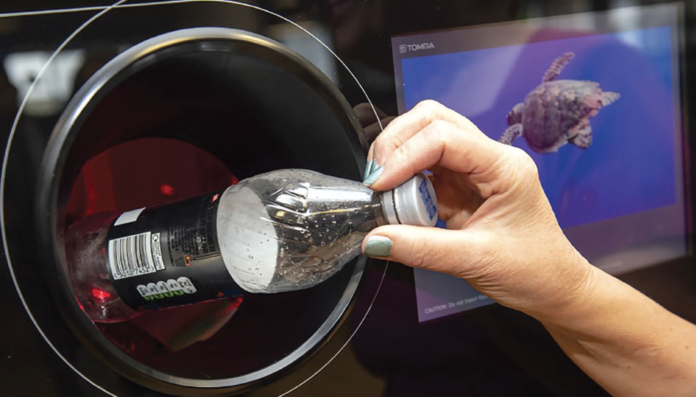Paul Hill looks into the potential issues wholesalers face with a deposit return scheme in Scotland
With the Scottish government’s scheduled date for a deposit return scheme (DRS) of early 2021 etching closer, wholesalers have already begun planning for a system that will undoubtedly put a strain on the logistical and legislative parts of their businesses.
The Scottish Wholesale Association (SWA) recently raised concerns around the inclusion of glass. Its chief executive, Colin Smith, commented: “We have consistently opposed the inclusion of glass, which adds costs, health-and-safety concerns and logistical complexity to the supply chain for a disproportionate benefit in terms of recycling rates.
“If glass is included, wholesalers will see double the value of beverage containers they supply being captured by DRS. This will significantly increase cashflow issues with the deposits being paid out upfront for all soft drinks and alcohol, while wholesalers importing wine and spirits will be particularly badly affected,” he added.
- Read more – SWA hoping to be recognised on DRS board
The inclusion of glass is just one of a range of concerns the SWA still has with the proposed design, stating that a Scotland-only DRS will create a beverage trade border between Scotland and England, leading to a restriction on free trade, a need for Scotland-only SKUs, increased warehousing, ICT changes and more complex trading logistics.
The Federation of Wholesale Distributors (FWD) echoes these thoughts and warns of a cashflow issue, citing the initial outlay wholesalers will have to pay once the deposit and producer fees have been added to the cost of DRS products.
One such wholesaler affected will be Glasgow-based JW Filshill. Its retail sales director, Craig Brown, explained that although the business is in favour of a fit-for-purpose DRS, there are a large number of problems that need to be ironed out first, such as the increased initial cost to the consumer.
Filshill has already conducted some research and estimates that around 55% of its products will be affected. A large number for a business that claims to be the only wholesaler in Scotland that delivers to England from a Scottish depot. “If the scheme’s administrator decides to have a barcode for Scotland and one for England, our business is looking at an added cost of around £600,000 per annum to operate our business in England.
“If this happens, it is our view that suppliers will rationalise their range for Scotland, resulting in less customer choice – we don’t think they will create more SKUs. This is one of the reasons why we favour a UK-wide DRS,” explained Brown.
At the time of writing, the draft regulations currently indicate a starting date of 1 April 2021 for key provisions concerning the scheme’s operation. It is at this point that DRS would be considered fully operational, with a consultation on the draft open until 10 December 2019.
“In summary, we are keen to be part of the solution and work with the rest of
the industry – producers, suppliers, wholesalers and retailers – to do this,” said Brown. “However, our view is that creating further legislation for businesses instead of investing in educating the public won’t deliver the desired outcome.”
- Read more- What are the possible outcomes of a DRS?








